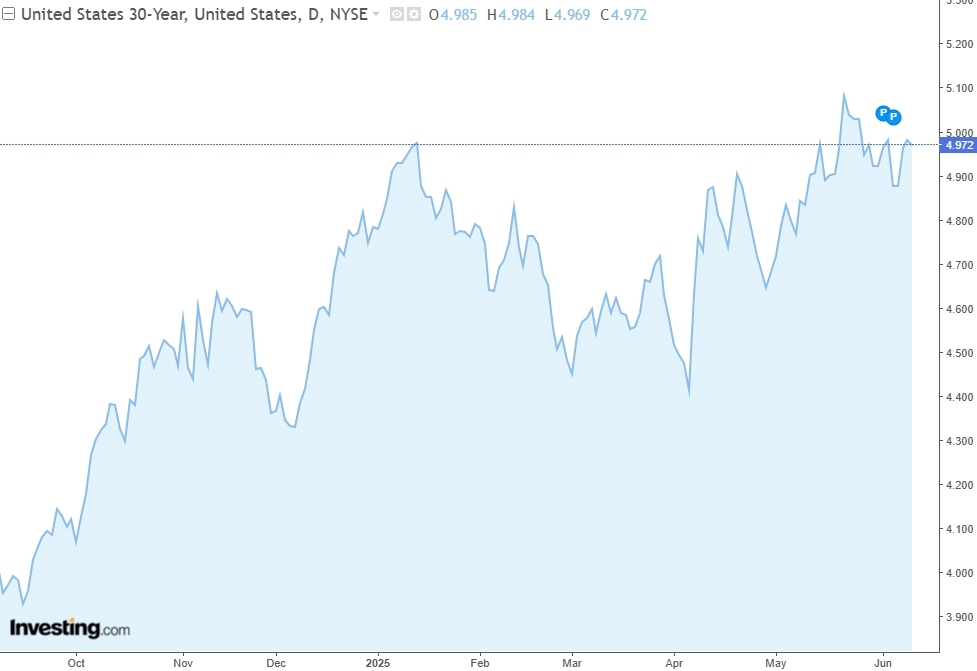A Major Test for Long-Dated Bonds – The 30-Year U.S. Treasury Auction, Analysts Say “Watch and Wait”

TradingKey - As global long-term bond markets remain turbulent due to concerns over soaring government deficits, this week’s $22 billion auction of 30-year U.S. Treasury bonds has drawn intense attention from Wall Street.
This week, the U.S. Treasury will hold a series of bond auctions, with the 30-year bond drawing particular focus. On Tuesday (June 10), the Treasury will auction $58 billion in 3-year notes, followed by $39 billion in 10-year notes on Wednesday, and culminating in the $22 billion auction of 30-year bonds on Thursday.
Investment managers at Brandywine Global Investment Management said all the auctions will be viewed as “stress tests” for market sentiment, with the 30-year Treasury auction likely being the least popular among the three.
Over the past month, major long-term bonds across the globe have underperformed amid growing concerns over expansionary fiscal policies, surging debt levels, and deteriorating budget deficits. Since late May, Japan has seen weak demand in three consecutive long-dated bond auctions, while demand for 20-year U.S. Treasuries hit multi-month lows.
As of writing (June 9), the yield on the 30-year U.S. Treasury stood at 4.972%, slightly below recent highs but still more than 50 basis points above its March low.

Yield on 30-Year U.S. Treasury, Source: Investing.com
Analysts have warned that if the 30-year bond auction continues to show signs of poor demand, such as weak bid-to-cover ratios or significant post-auction yield spikes (“tail effects”), it could spell trouble for the broader U.S. bond market.
At the same time, the Trump administration is pushing forward the “Beautiful Big Bill”, which proposes to raise the U.S. debt ceiling by $4 trillion and implement sweeping tax cuts.
According to the Congressional Budget Office (CBO), the bill could add $2.42 trillion in new deficits over the next decade.
Moreover, Section 899 of the proposed legislation — which calls for additional capital taxes on foreign investors and corporations — could further dampen demand for U.S. Treasuries. Seen by many as a "capital expulsion clause," this provision risks turning Trump's tariff war into a broader war on capital, prompting overseas investors to reevaluate their allocation to dollar-denominated assets like U.S. government bonds.







